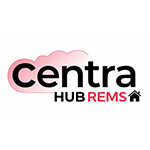Description

4QT Real Estate ERP

iRealty
Comprehensive Overview: 4QT Real Estate ERP vs iRealty
4QT Real Estate ERP, known as iRealty, is a comprehensive software solution designed to cater to the diverse needs of the real estate industry. Let's break down its primary functions, target markets, market performance, and key differentiators:
a) Primary Functions and Target Markets
Primary Functions:
-
Property Management: iRealty offers robust tools for managing property listings, leases, tenant information, and maintenance tasks. It helps streamline operations and improve efficiency for property managers.
-
Accounting and Financial Management: The platform includes integrated accounting modules tailored for real estate, covering rent roll management, accounts payable/receivable, and financial reporting.
-
Lease Management: iRealty helps automate lease tracking, renewal notifications, and compliance requirements to ensure timely renewals and adherence to legal obligations.
-
CRM and Marketing: The ERP system includes customer relationship management features that offer lead tracking, communication management, and marketing campaign tools tailored for real estate agencies.
-
Reporting and Analytics: iRealty provides detailed analytics and reporting capabilities to give real estate companies insights into their operations, helping them make data-driven decisions.
Target Markets:
- Property Management Companies: Firms managing residential and commercial properties, including apartments, office spaces, and retail properties.
- Real Estate Agencies: Agencies involved in sales and leasing, needing tools to manage customer relationships and property listings.
- Real Estate Investors: Investors looking to manage portfolios efficiently, track financials, and evaluate investment performance.
- Property Developers: Companies involved in developing new projects requiring comprehensive planning and management tools.
b) Market Share and User Base
While specific market share data can be challenging to obtain without proprietary market analysis, iRealty, as a niche ERP product tailored for real estate, typically competes among mid-sized to large real estate firms seeking comprehensive and specialized solutions.
The overall user base of iRealty would likely be smaller than general ERP systems (like SAP or Oracle) due to its specialized nature. However, within the real estate segment, iRealty would have a significant presence, especially in regions or markets where 4QT has established strong local partnerships and customer bases.
c) Key Differentiating Factors
-
Specialization for Real Estate: Unlike general ERP solutions, iRealty is specifically designed to address the unique challenges and needs of the real estate industry. This specialization allows for more tailored functionalities that directly support real estate operations.
-
Comprehensive Integration: iRealty integrates property management with financials and CRM, providing a seamless ecosystem for real estate operations. This reduces the need for multiple disparate systems and enhances data coherence across the organization.
-
Customization and Scalability: The software is built to be customizable according to the specific needs of different real estate sectors, whether it's residential, commercial, or mixed-use development. Additionally, it scales with the business, accommodating growth without significant overhauls.
-
User-Friendly Interface: A focus on ease of use ensures that both tech-savvy users and traditional property managers can effectively navigate and utilize the system.
-
Industry-Specific Compliance Features: iRealty offers tools that help companies remain compliant with industry regulations, lease agreements, and tenant laws specific to various jurisdictions.
By leveraging these elements, iRealty distinguishes itself as a pivotal tool for real estate businesses aiming to transform their operations with technology-driven solutions.
Contact Info

Year founded :
Not Available
Not Available
Not Available
Not Available
Not Available

Year founded :
2002
+61 1300 855 982
Not Available
Australia
http://www.linkedin.com/company/irealtysolutions
Feature Similarity Breakdown: 4QT Real Estate ERP, iRealty
To provide a comprehensive comparison of features between 4QT Real Estate ERP and iRealty, it's important to understand what each product typically offers in the realm of real estate ERP solutions. While the specific feature sets of each product can vary, we can make general comparisons based on common industry offerings.
a) Core Features in Common
-
Property Management: Both platforms are likely to offer features that handle property listings, tenant management, lease tracking, and maintenance scheduling.
-
Accounting and Financials: Core accounting features such as invoicing, payments, and financial reporting are staples in both systems. They often integrate with other financial systems for seamless fiscal management.
-
CRM (Customer Relationship Management): Features to manage client interactions, track leads, and maintain customer history can be found in both ERPs, crucial for relationship building in real estate.
-
Reporting and Analytics: Both platforms provide reporting tools to analyze various data points like occupancy rates, financial performance, and marketing effectiveness.
-
Integration Capabilities: Connectivity with third-party applications like MLS software, financial software, or communication tools is a common feature.
b) User Interface Comparison
-
4QT Real Estate ERP: Typically, the UI for 4QT might focus on streamlined business processes with more modular options tailored to midsize enterprises. Their design might focus on functionality with extensive use of dashboards and data visualizations.
-
iRealty: iRealty might prioritize a more modern and intuitive interface, possibly with an emphasis on user experience for small to medium real estate businesses. They might use simpler navigation and more visually appealing layouts to attract users without a technical background.
Overall, both products aim to be user-friendly but might cater to slightly different user bases: with 4QT focusing more on enterprise levels and iRealty possibly aiming for a wider SMB market with ease of use as a priority.
c) Unique Features
-
4QT Real Estate ERP:
- Advanced Customization: It might offer deeper customization for larger clients with specific process requirements, including custom workflow automation and API integrations.
- Enterprise-Grade Security: More robust security measures could be a focus, catering to enterprises needing compliance with industry standards like GDPR or HIPAA.
-
iRealty:
- Mobile App Functionality: iRealty may offer a more robust mobile app experience, allowing agents and property managers to work efficiently on the go.
- Simplicity and Quick Onboarding: iRealty might differentiate itself by offering easier onboarding processes for new users or smaller agencies looking for minimal setup time.
While both ERPs offer robust solutions for real estate management, their unique features often cater to different segments of the market or specific user needs, with 4QT potentially serving larger enterprises with complex needs and iRealty appealing to smaller businesses with simpler, more accessible tools.
Features

Property Management
Financial Management
Maintenance Management
Reporting & Analytics

Communication Tools
Analytics and Reporting
Property Management
Finance Management
Best Fit Use Cases: 4QT Real Estate ERP, iRealty
4QT Real Estate ERP and iRealty are specialized software solutions designed to cater to specific needs within the real estate industry. Here’s how these products are best suited to particular types of businesses, projects, and scenarios:
4QT Real Estate ERP
a) Types of Businesses or Projects Suited:
- Commercial Real Estate Firms: 4QT is particularly beneficial for firms managing large portfolios of commercial properties, including office buildings, retail spaces, and industrial parks. Its robust asset management capabilities allow for efficient oversight and handling of intricate lease structures.
- Real Estate Investment Trusts (REITs): Due to its advanced financial management features, 4QT can cater well to REITs that require detailed financial analysis and reporting to comply with regulatory requirements.
- Property Development Companies: Companies involved in large-scale property development can utilize 4QT for project management, helping track progress, costs, and resources effectively.
- Property Management Companies: For businesses dealing with significant volumes of residential or mixed-use properties, 4QT offers comprehensive property management tools that streamline rent collection, tenant communications, and maintenance scheduling.
b) Preferred Scenarios:
- Integrated Operations Management: When a company requires integration of its various real estate operations from accounting to maintenance, 4QT’s all-in-one platform simplifies these processes.
- Scalable Solutions: As businesses grow, having a system that scales with increased complexity and volume of transactions is crucial, making 4QT a preferred choice for expanding companies.
- Complex Lease Management: In scenarios involving intricate lease agreements or multiple lease renewals and negotiations, 4QT's lease management module provides the necessary support and automation.
iRealty
b) Types of Businesses or Projects Suited:
- Real Estate Agencies: iRealty is often favored by real estate agencies focused on sales and rentals due to its CRM capabilities, helping manage client relationships and transactions efficiently.
- Residential Brokerage Firms: With iRealty, brokers can easily manage listings, match clients with properties, and streamline communication, making it ideal for primarily residential-focused brokers.
- Small to Medium Enterprises (SMEs): The software's user-friendly interface and cost-effective solutions are attractive to smaller firms that may not require the extensive features of a full-scale ERP.
d) Preferred Scenarios:
- Client Relationship Management: When the primary challenge is maintaining and enhancing client interactions, iRealty’s CRM tools offer robust capabilities for managing prospective clients and nurturing leads throughout the sales funnel.
- Digital Marketing Integration: Real estate companies looking to leverage digital marketing channels can utilize iRealty’s integration features to boost visibility and manage campaigns centrally.
- Streamlined Transaction Management: In situations where efficient transaction processing is pivotal, iRealty provides tools to automate and track these processes with ease.
Catering to Different Industry Verticals or Company Sizes
-
Industry Verticals: Both products are adaptable across various segments of real estate, from commercial and residential to industrial properties. 4QT Real Estate ERP aligns well with verticals requiring extensive operational oversight, whereas iRealty serves segments more centered around sales, customer engagement, and streamlined operations.
-
Company Sizes: 4QT is suitable for larger enterprises due to its comprehensive features that address complex real estate operational needs. On the other hand, iRealty caters to small and medium-sized businesses as it offers essential functionalities that do not overwhelm with unnecessary complexity, making it manageable and accessible for less extensive operations.
Pricing

Pricing Not Available

Pricing Not Available
Metrics History
Metrics History
Comparing teamSize across companies
Conclusion & Final Verdict: 4QT Real Estate ERP vs iRealty
Conclusion and Final Verdict
Deciding between 4QT Real Estate ERP and iRealty hinges on understanding the unique needs of your real estate business. Both products provide competitive features tailored to different operational focuses and either could potentially add substantial value depending on your specific requirements.
a) Best Overall Value
The determination of the best overall value between 4QT Real Estate ERP and iRealty depends significantly on the user profile and business scale:
-
4QT Real Estate ERP is generally acknowledged to offer comprehensive features with robust integration capabilities, making it a valuable choice for larger real estate firms requiring extensive customization and a holistic operational solution.
-
iRealty, on the other hand, stands out for its user-friendliness and cost-effectiveness, particularly appealing to smaller firms or startups looking for a straightforward platform to handle their fundamental real estate management tasks without an overwhelming financial investment.
Thus, for larger enterprises with complex needs and the budget to match, 4QT Real Estate ERP could offer the best value. Conversely, iRealty may provide better value for smaller or medium-sized businesses prioritizing ease of use and affordability.
b) Pros and Cons
4QT Real Estate ERP:
-
Pros:
- Comprehensive suite of features including in-depth analytics, CRM integration, and property management.
- Highly customizable, enabling businesses to tailor the software to specific operational needs.
- Scalable with the ability to handle a large volume of data and complex transactions.
-
Cons:
- Higher cost, potentially involving a significant initial investment and ongoing expenses.
- Complexity in setup and customization potentially requiring dedicated IT support.
- Steeper learning curve, possibly necessitating extensive user training.
iRealty:
-
Pros:
- Affordable pricing model, making it accessible to smaller businesses.
- User-friendly interface, reducing the time needed for training and adoption.
- Quick implementation timeframe, allowing businesses to start using the platform swiftly.
-
Cons:
- Limited customization options might not meet the needs of larger, more complex businesses.
- Lower scalability may be a concern for rapidly growing enterprises.
- Less comprehensive in terms of features compared to more robust ERP solutions like 4QT.
c) Recommendations
-
Consider Business Size and Growth Plans: If you are a smaller agency or startup with plans to scale slowly, iRealty's affordability and ease of use might be ideal. However, for larger firms or those anticipating rapid growth, investing in 4QT’s comprehensive capabilities could be beneficial.
-
Evaluate Feature Needs vs. Budget Constraints: Assess the critical features your business needs. If a full suite of ERP functionalities is vital, and your budget allows, 4QT might be the right fit despite its complexity and cost. Alternatively, if minimal features suffice to optimize daily operations within your budget, iRealty might deliver ample value.
-
Customizability vs. Simplicity: For companies that require tailored solutions, 4QT’s high degree of customizability can effectively meet unique business requirements. Conversely, if the priority is a ready-to-use solution, iRealty’s simplicity might be more advantageous.
Ultimately, the choice between 4QT Real Estate ERP and iRealty should be influenced by your organization's current needs, budget limits, and long-term strategic goals. Customers should leverage trial periods and demos offered by each platform to more thoroughly gauge which solution aligns best with their operational style and requirements.
Add to compare
Add similar companies




